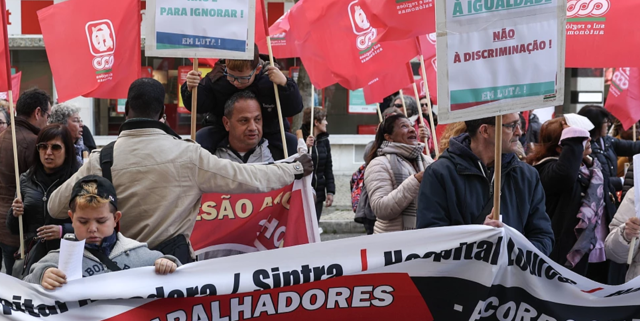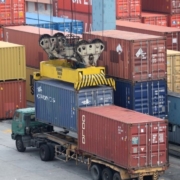Strikes
Portugal, a country of strikes

The first half of 2023 was marked by successive strikes covering numerous sectors. From train drivers to doctors and from teachers to journalists. Even police officers gathered to protest against the lack of their right to strike.

Discontent is high and workers ready to use their voice. Portuguese are of the opinion that life is generally going well but that their financial situation leaves much to be desired.

Looking at the figures from the Directorate-General for Employment and Labour Relations (DGERT), it is found that the number of strikes last year increased by 25% compared to 2021, being the highest since 2013 – at the time of the financial crisis. And in January this year, the number of strike notices almost quadrupled compared to the same month in 2022.

The year started with a strike by Comboios de Portugal (Portuguese Railways) for a pay rise to compensate for the loss of purchasing power and quickly spilled over to the other sectors of public transport.

The 2023 judicial year opened with a strike in January, against the lack of staff, the freezing of promotions, and the degradation of justice that undermines the functioning of courts. It did not stop there, with more strikes in February and April. The effects of the strikes on the justice system are devastating with the postponement of thousands of hearings and trials in the courts.

Journalists are not left out of the fight, with TV1 going on strike in March for raises in payment, an increase in meal allowance, and 25 days of vacation. Employees from the news agency Lusa followed in April and announced new strikes in June and August and also RTP (Radio and Television Portugal) unions threaten to take action in the absence of their ‘decent’ requests.

In February, technical and administrative staff from three hospitals in Lisbon united, to claim a collective labour agreement in all State-run hospitals. A strike in March was suspended after the hospitals finally gave in to their demands.

Nurses started paralyzing services in February. There were massive demonstrations countrywide and even the private sector joined in for better pay and working conditions.

As for doctors, a national strike of two days took place in March over the ‘lack of measures’ in the SNS (National Health Service) and the ‘unacceptable proposal of the Ministry on salary scales. New strikes have been announced in August.

For teachers, the second term started in January with strikes against the government’s proposals for the revision of the recruitment regime and for better career perspectives. 45,000 teachers signed a petition. They warned that the protest would not stop ‘any time soon’, and they were right.

There were massive demonstrations and strikes all over the country. Fenprof (Federation of Teachers) called for convergence between unions in defense of teachers’ rights and public schools.

Negotiations with the government are deadlocked and strikes are back and forth in the north, center, and south of the country. Developments that do not bode well for the coming school year. Between pressure, threats, and hopes, the teachers’ struggle reached Brussels, where they try to find the answers they do not have in Portugal.
Enjoy your week Approveite a semana (pic Sapo)





